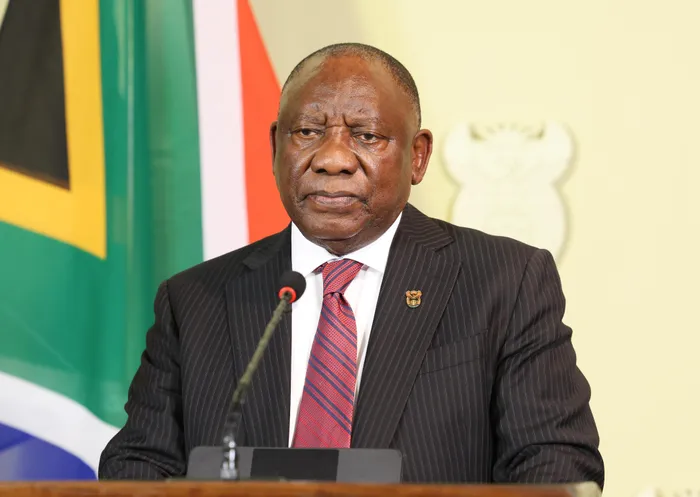
Amnesty International South Africa has asked President Cyril Ramaphosa to invest the money allocated for the National Dialogue in the protection and fulfilment of people’s rights.
Image: Supplied / GCIS
Civil rights organisation, Amnesty International South Africa, has urged President Cyril Ramaphosa to redirect the R700 million allocated for the National Dialogue.
The organisation advocates for this budget to be invested instead in safeguarding and fulfilling the basic human rights of South African citizens.
Ramaphosa formally announced the National Dialogue last month. It is intended to be a platform for reflection on the nation's current state, envisioning its future, and establishing the foundation for the upcoming National Development Plan.
The process, scheduled for August 15, 2025, will unfold in phases, including local consultations and sectoral engagements, to provincial and national gatherings, over the period of a year.
Ramaphosa also pointed out that this is a chance for South Africans to shape the next chapter of democracy, adding that it is an opportunity to forge a new social compact for the development of the country.
While South Africa’s transition to democracy years ago was a landmark event, the country continues to grapple with significant challenges stemming from its past and present realities.
Despite progress in some areas, deep-seated issues such as poverty, inequality and unemployment persist, often linked to the legacy of apartheid and the slow pace of land reform.
Furthermore, corruption and state capture have undermined public institutions and service delivery, impacting basic services like water, electricity, and healthcare.
Amnesty International South Africa’s executive director, Shenilla Mohamed, said that while nation-building and social cohesion are important, the government should ensure that the budget allocated does not come at the expense of addressing the country’s most pressing challenges.
“Most of the country’s population lives in dire conditions and does not have access to basic essential services such as water and sanitation,” said Mohamed.
“Repeatedly, we hear people complaining of raw sewerage flowing through townships, inadequate housing, poor medical services, lack of quality education, high rates of gender-based violence, crime, and the list goes on. To address these violations and ensure the fulfilment of basic human rights, we need more government action and increased investment,” she said.
Asked to comment on the statement, Ramaphosa’s spokesperson Vincent Mangwenya did not respond.
Amnesty stated that, despite a progressive legal landscape, rates of sexual and gender-based violence remain staggeringly high, with the number of reported offences in 2023/2024 sitting at 53,285, adding that the South African Police Service continues to fail in ensuring quality investigations.
The organisation said that when it comes to basic services, over 3 million people have no access to basic water supply service, while 5.3 million households do not have access to safe and reliable drinking water.
“Decades of corruption and the mismanagement of public funds have weakened the government’s ability to safeguard the country’s water security, especially in the face of climate change and extreme weather events. Climate change is another threat to a wide range of human rights and will continue to impact the rights to life, health, housing, water, and sanitation. Without proper investment in climate-resilient infrastructure, we will continue to see destruction and loss of life during floods and other extreme weather events.
“There are a number of ways to spend R700 million. We urge the South African government to invest in the protection and fulfilment of people’s human rights,” said Mohamed.
Meanwhile, political analyst Professor Sipho Seepe said the National Dialogue is a costly distraction meant to give the impression that Ramaphosa’s administration is doing something.
He said this is all about smoke and mirrors, something that Ramaphosa has mastered and perfected.
“The National Dialogue has no legal and constitutional standing. Its recommendations are not legally binding. To that extent, it is just another talkshop that is meant to cover up Ramaphosa’s glaring failures,” he said.
Another political analyst, Ntsikelelo Breakfast, said there is no need for the National Dialogue to uncover challenges facing the country, adding that they are well-known.
manyane.manyane@inl.co.za